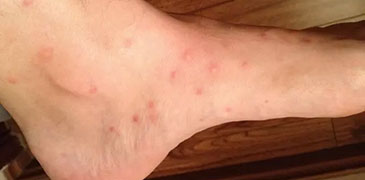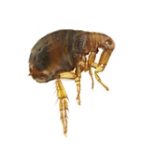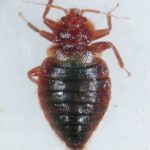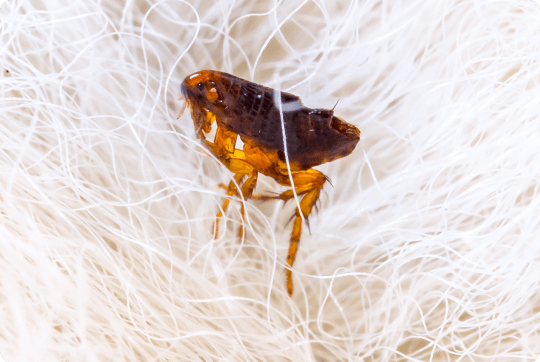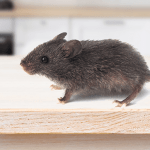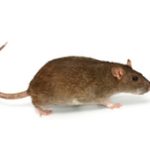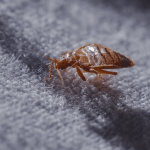Do Flea Bombs Work?
Fleas find their way from outdoors into your home via your pets. They’re fast, extremely good at reproducing, excellent at hiding, and can live on one meal for up to two months!
Getting rid of fleas can be difficult as for every single adult flea there are 35 larvae and as many as 50 eggs in your carpets, furniture, nooks and crannies. But with the introduction of the flea bomb help is at hand.
What is a flea bomb?
A flea bomb, also known as a fogger or total release fogger, is a container that houses a pesticide-induced fog that when released sprays a cloud of insecticide into the atmosphere. This fog then falls to the ground effectively contaminating every surface it comes into contact with.
Types
The majority of flea bombs contain a chemical that kills adult fleas and prevents the growth of eggs and larvae. Some of the most effective flea bombs include:
- Zodiac: active ingredients are (S)-Methoprene which stops the maturation of the flea so breaking the life cycle
- Permethrin: kills adult fleas
- Zema IGR Fogger: contains Nylar to stop the flea life cycle and plant-based pyrethrum to kill adult fleas
- Adams Plus Fogger: with active ingredients of (S)-Methoprene and permethrin
Features
One flea bomb will typically take care of a 700 square foot area. You’ll need to calculate the correct number of canisters needed for the flea bombs to be effective. All you have to do is place the container on a level surface in the middle of the room and press or lift the tab as instructed. Wear a mask and remember to point the container away from your face.
How do flea bombs work?
The active ingredients of the fog contain some form of insecticide that effectively gets rid of the fleas in the affected areas. They’re designed to be left alone for a specified length of time so that the fog released into the air has time to settle. Any surfaces that the fog lands on will be affected.
How to use flea bombs?
Follow these simple steps prior to using a flea bomb:
Prepare the space
Everything that can be removed should be as the area will be covered in pesticides. You also need to make sure there aren’t any naked flames as these pesticides are highly flammable, so turn off all pilot lights, electrical appliances and lights.
Fleas love hidden and sheltered spaces such as under furniture and the interior of closets and drawers. For a comprehensive fogging treatment you’ll need to empty and open all of these spaces, and any clothes and bedding should be bagged.
Cover dishes, utensils and food processing items to protect them from the spray, and wrap furniture and electrical equipment with newspapers or old sheets. All pet beds, carriers and toys should be removed from the house.
Exterior doors and windows should be closed, but doors between rooms left open for effective transmission, with any gaps under doors blocked with an old blanket or towel. It’s also a good idea to put up a sign outdoors to say that flea bombing is taking place.
Activate the flea bomb
Follow all the instructions on your flea bomb container. Don’t forget that some flea bombs may spray chemicals for up to eight hours so you need to prepare to be away from your property for that length of time. During this time the pesticide will have floated to the ground reducing the risk of breathing it in.
Come home
As soon as you return you need to open all doors and windows to maximise ventilation and air circulation. The smell may last for several hours even after you’ve carried out a deep clean. Wear protective gloves and a mask to avoid making contact with any chemical residue as you hygienically clean all surfaces and vacuum floor coverings thoroughly.
Any exposed bedding and clothing should be washed on a hot cycle, using a pre-wash initially. After washing, clean the washing machine with a recommended product to avoid contaminating future washes.
Vacuum daily for a fortnight to remove any newly hatched adult fleas that may have survived.
Monitor flea activity
For the next few weeks, you need to keep an eye on the situation. Occasionally flea eggs survive the flea bomb and will hatch later, but any residue pesticide should be strong enough to kill the adult fleas. If not, you may have to repeat the flea bomb procedure. The flea bombs won’t be effective if you don’t treat your pets for fleas to prevent further infestation.
Check also: How do I know if my has fleas?
Are flea bombs safe?
Some pesticides in flea bombs can affect your health so it’s essential to buy a brand that doesn’t contaminate your home. Some powerful chemicals can be toxic and returning home before the advised time may lead to illness.
Are flea bombs safe for children and babies?
When using flea bombs, it’s important to consider the safety of your children and babies, as the chemicals released during the process can be harmful to them. Flea bombs work by spreading pesticides that fill your home and cover everything in it. Prolonged exposure can be dangerous, especially for young children and babies. It’s essential to keep your children away from the house while the flea bomb is in use and for at least an hour or two afterwards to ensure the air has cleared. Additionally, ensure that anything your baby or child may touch has been thoroughly cleaned. If you’re concerned about the safety of your baby or young child, it may be best to consider alternative flea control options.
For adults, flea bombs may be less harmful, but the same precautions should be taken. It’s recommended to thoroughly air out the home before re-entering and wait for the air to clear of any remaining chemicals.
While flea bombs are an option for extreme flea infestations, they are not the only solution. Consider exploring other methods, such as spray pesticides, that can target fleas without posing the same level of risk to your family’s health. Although flea bombs can effectively handle large infestations, they should not be your first choice if you have young children or babies in the house.
Flea treatment for your property
Get rid of the flea infestation with professional pest extermination!
Are flea bombs safe for cats and dogs?
When using flea bombs in a house with pets, it’s essential to choose the right product and take proper precautions to ensure the safety of your animals. Opt for a flea bomb that uses a dry fog formula, which helps reduce scent and residue that could harm pets. Pesticide ingestion can be a significant concern, so it’s important to keep pets out of the treated house for several hours—ideally up to 24 hours or more—and ventilate the property thoroughly afterwards.
Some flea bombs are specifically designed to be safer for pets. These typically use a less-toxic formula but still require the same safety precautions, such as keeping pets away from the treated area and ensuring proper ventilation.
It’s also crucial to wash pet bedding, toys, and any items they frequently touch after using flea bombs to eliminate any pesticide residue that could be harmful. Even after the home has been ventilated, be cautious about allowing pets to roam areas where the residue may still linger.
If you are uncertain about the safest approach, it’s always best to consult with your veterinarian before using flea bombs in your home. Your vet can recommend the most suitable flea control products based on your pet’s health condition and the severity of the flea infestation.
Flea bombs are often effective for large infestations, but they shouldn’t be relied on as the only solution. To fully combat fleas, consider combining the use of flea bombs with other flea control methods, such as treating your pets directly with vet-approved flea treatments, or calling a pest control specialist.
Check more: How to Protect Your Pets from a Flea Treatment Poisoning
Check more: 8 Little-Known Signs of Cat Fleas to Help You Identify a Flea Infestation
Look at a flea bomb FAQ before you come to a decision:
Do fleas cause illness?
Fleas can carry and transmit several potential diseases, but typically their bites are itchy and painful. Scratching them may damage the skin resulting in a potential bacterial infection, and this can lead to swollen glands and extreme pain around the bite.
Can fleas harm my pets?
Fleas increase the risk of health issues such as anaemia and infection with tapeworms. Some pets can experience an allergic reaction and lose their fur through constant scratching, leading to redness and irritated skin. Bacterial infections can cause fever, nausea, and joint pain.
What happens if fleas are left untreated?
Fleas won’t go away on their own – they simply multiply and spread. If you’re struggling with a flea infestation you need to take immediate action to eradicate them. You can get rid of fleas in your house by hiring a flea exterminator.
Why are flea bombs not killing the fleas?
Flea bombs may not always be effective because they primarily target adult fleas, leaving other stages of the flea life cycle—such as eggs and larvae—untreated. These flea eggs and larvae can often hide deep within carpets, furniture, and other hard-to-reach areas, where the chemicals may not penetrate. As a result, even if the adult fleas are killed, the infestation can continue as the eggs hatch and larvae develop into new fleas. This means that while flea bombs can help reduce the adult flea population, they don’t fully eliminate the problem.
Natural flea bombs
Flea bomb alternatives come in the shape of supplements in your pet’s diet to make their blood less attractive to fleas. Other defences include flea combs, safe flea repellents, and flea powders or drops recommended by your vet.
Flea repellent shampoos, natural flea collars and flea tags are also methods of naturally protecting your pet and your home from fleas.
Takeaways
- Choose flea bombs that stop pre-adult fleas from growing and breeding
- For smaller homes use sprays with less industrial-strength ingredients
- Treat the environment as this is vital to prevent flea infestation of your home
- Use natural methods which take more effort but will ensure healthy and flea-free surrounds
Get your home inspected by a certified pest technician!
Our goal is to provide valuable information regarding fleas and possible health risks associated with them. But we as a commercial service provider cannot give you any medical advice.



